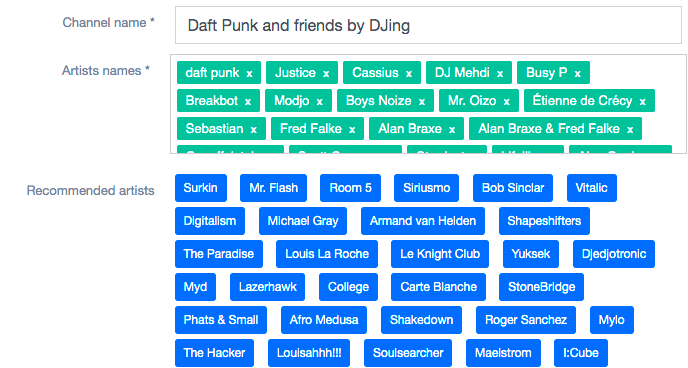What was Turntable.fm?
Turntable.fm was a social media-driven music streaming service that allowed users to interact with each other in virtual rooms, where they could listen to music and chat. It was founded by Billy Chasen and Seth Goldstein and launched in 2011. In Turntable.fm, users could create their own rooms or join existing ones, where a rotating set of DJs would play songs for the audience. Each room had a specific theme or genre, and users could vote on whether they liked the song being played. DJs would gain points based on the audience's reactions, which could be used to customize their avatar or unlock other features.
Turntable.fm gained significant popularity in the early 2010s, but it faced challenges with licensing issues, competition from other music streaming services, and maintaining user engagement. Due to these struggles, the service was shut down in December 2013. Despite its relatively short lifespan, Turntable.fm was influential in the development of social music experiences online, and its concept inspired similar platforms that followed.
 Create a Music TV channel in 2 minutes thanks to automated suggestions
Create a Music TV channel in 2 minutes thanks to automated suggestionsWhat are the necessary licenses for performing recorded music in public?
To legally perform recorded music in public, various licenses are required, which usually cover the rights to the musical composition and the sound recording. Here's an overview of the key licenses involved:
Public Performance Rights: These licenses are needed to perform a musical composition (the underlying musical work, including melody, lyrics, and harmony) in public. In the United States, public performance rights are managed by Performing Rights Organizations (PROs) such as ASCAP, BMI, and SESAC. Businesses and venues typically obtain blanket licenses from these organizations to cover the public performance of the music in their catalogs.
Master Use License: This license grants permission to use a specific sound recording (the actual recorded performance of the musical composition). Master use licenses are typically obtained from the record label that owns the rights to the recording or the artist directly if they own their own master rights. This license is particularly relevant when using a recording in movies, TV shows, commercials, or any other audiovisual production.
Mechanical License: This license is needed when reproducing and distributing a musical composition (e.g., making copies of a song for sale). In the United States, mechanical licenses are typically managed by the Harry Fox Agency or can be obtained directly from the copyright holder, often the music publisher or the songwriter.
Synchronization License: Also known as a "sync" license, this permits the use of a musical composition in timed synchronization with visual elements, such as in movies, TV shows, commercials, or video games. Sync licenses are typically negotiated directly with the music publisher or the songwriter.
What methods can DJs or music enthusiasts employ to curate music without encountering public performance-related challenges?
DJs and music enthusiasts can adopt several approaches to curate music without facing public performance-related issues. Here are a few suggestions:
Private Listening Sessions: Organize private listening sessions or gatherings with friends and family, where the music is played for a small, closed group rather than a public audience. This typically doesn't require public performance licensing.
Use Royalty-Free Music: Curate playlists using royalty-free music, which can be freely used without obtaining licenses or paying royalties. There are numerous online platforms and libraries that offer royalty-free music in various genres.
Creative Commons Licensed Music: Utilize music released under Creative Commons licenses, which allow for more flexibility in terms of usage, depending on the specific license chosen by the creator. Some licenses may permit public performance without fees, but make sure to carefully review the terms of the chosen license.
Collaborate with Independent Artists: Connect with independent musicians and obtain their permission to use their music in your DJ sets or playlists. This can help build relationships with emerging artists and bypass traditional licensing requirements, as long as you have their consent.
Use Licensed Music Services: For businesses or venues, consider using licensed background music services . These services typically cover the necessary public performance licenses and offer curated playlists and customizable music options.
Focus on Educational or Non-Commercial Settings: If you are involved in music curation for educational purposes or non-commercial events, you may fall under different licensing requirements or exemptions. Check local regulations to understand the specific rules and potential exemptions for educational or non-commercial uses.

